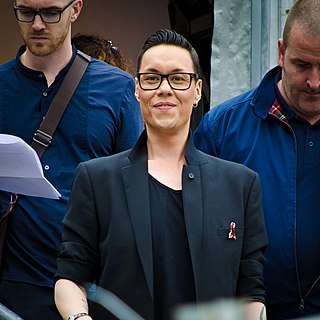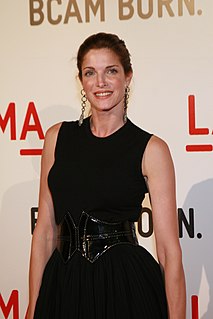A Quote by Ronald Reagan
We've got to teach history based not on what's in fashion, but what's important.
Related Quotes
When I went to high school - that's about as far as I got - reading my U.S. history textbook, well, I got the history of the ruling class. I got the history of the generals and the industrialists and the presidents that didn't get caught. How 'bout you? I got all of the history of the people who owned the wealth of the country, but none of the history of the people that created it.
I think fashion is probably one of the most accessible and immediate forms of visual culture. In 1978, when I realized that I wanted to work on fashion, I had gone to Yale to get my Ph.D. in European cultural history. I suddenly realized fashion's part of culture, and I can do fashion history. All my professors thought this was a really bad idea, that fashion was frivolous and unimportant. And, increasingly over time, people have recognized that it provides such a mirror to the way we think, our values and attitudes.
When we teach a child to sing or play the flute, we teach her how to listen. When we teach her to draw, we teach her to see. When we teach a child to dance, we teach him about his body and about space, and when he acts on a stage, he learns about character and motivation. When we teach a child design, we reveal the geometry of the world. When we teach children about the folk and traditional arts and the great masterpieces of the world, we teach them to celebrate their roots and find their own place in history.
I see fashion as a proclamation or manifestation of identity, so, as long as identities are important, fashion will continue to be important. The link between fashion and identity begins to get real interesting, however, in the case of people who don't fall clearly into a culturally-recognized identity.
What experience and history teach is this - that nations and governments have never learned anything from history, or acted on any lessons they might have drawn from it. Variant: What experience and history teach is this - that people and governments never have learned anything from history, or acted on principles deduced from it.
What they teach you as history is mythology and true mythology is far from fantasy -- it is our true history. A bulk of our real history can be found in Egyptian and Greek mythology. Yes, myths reveal to us worlds of other dimensions that make up our true reality. History books teach us that the minds of the past operated on the same frequency, dimension, or level of consciousness as we do now. Not true at all.

































